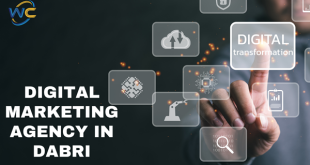Is the legacy of the physical supply chain on the verge of extinction? Are we standing on the cusp of a technological renaissance that threatens to upend the time-honored tenets of traditional logistics? And how are logistics companies responding to this accelerating wave of digital disruption? The answers to these pivotal questions shape the narrative of this insightful blog post, charting the intriguing course of technology-driven transformation in the logistics landscape.
In the subsequent sections, we delve deeper, examining the ways in which technology is reshaping traditional logistics companies, and exploring the promises and pitfalls of this rapidly advancing digital frontier. Through the lens of real-life case studies and cutting-edge technological perspectives, we bring to you a comprehensive overview of the trends, challenges, and advancements that are revolutionizing the world of logistics. Modernizing these companies is not just a strategic choice but a necessity for survival and growth in the evolving marketplace.
Here’s how traditional logistics companies can embrace modernization:
1. Digital Transformation and Automation
The first step in modernizing a logistics company is to adopt digital tools that streamline operations. Many traditional logistics companies still rely on manual processes and outdated software systems. Implementing advanced logistics management systems (LMS) and enterprise resource planning (ERP) solutions can optimize everything from order processing to warehouse management. Automation, such as robotic process automation (RPA) and autonomous vehicles for transportation, can dramatically reduce errors, enhance speed, and cut costs.
2. Data-Driven Decision Making
Data is becoming the lifeblood of modern logistics. By leveraging big data analytics and Internet of Things (IoT) technology, companies can gain real-time insights into the status of shipments, vehicle performance, and customer behavior. Predictive analytics can help in demand forecasting, route optimization, and proactive maintenance of fleets, thus improving operational efficiency and reducing downtime.
3. Adopting E-commerce Logistics
The rapid rise of e-commerce has shifted consumer expectations toward faster and more flexible deliveries. Traditional logistics companies can modernize by integrating last-mile delivery solutions, partnering with e-commerce platforms, and offering customizable delivery options. This includes offering real-time tracking, same-day delivery services, and mobile app solutions to enhance the customer experience.
4. Sustainability and Green Logistics
Environmental concerns are driving logistics companies to rethink their operations. Adopting green logistics strategies, such as using electric vehicles, optimizing delivery routes to reduce fuel consumption, and adopting sustainable packaging solutions, is essential. Companies that focus on sustainability not only improve their public image but also reduce operational costs over the long term.
5. Collaborative Ecosystems and Partnerships
In a fast-paced world, no logistics company can operate in isolation. Traditional logistics companies should form strategic partnerships with tech firms, startups, and even competitors to leverage each other’s strengths. For instance, working with software providers for real-time tracking solutions or partnering with local delivery companies for last-mile deliveries can help expand capabilities without major investments.
6. Enhancing Customer Experience
The modern customer expects visibility, flexibility, and speed. Logistics companies need to offer seamless experiences, from transparent pricing to easy returns. Implementing customer relationship management (CRM) tools, real-time communication systems, and self-service options for customers can go a long way in enhancing trust and satisfaction.
7. Agile and Scalable Operations
To stay competitive, logistics companies must be agile and scalable. Cloud computing solutions allow logistics firms to scale operations up or down based on demand. Agile project management practices ensure that companies can adapt quickly to changing market dynamics, such as the rise of new competitors or the shift in consumer behavior.
The Digital Disruption: Why Modern Technology?
Consider this: Over the past decade, technological advancements such as IoT, robotics, AI, blockchain, etc., have pervaded almost all sectors, consolidating their foothold in the logistics sector, too. But what has prompted this seismic shift? The answer lies in the pursuit of improved efficiency, accuracy, and quality.
Increased competition and the need to maintain competitive advantage has been the primary driver of the adoption of innovative technologies. These not only streamline operations but also dramatically enhance critical decision-making processes. Moreover, greater environmental consciousness has also necessitated the need for renewable energy sources and sustainable technology.
Technological Transformation: What’s Changing?
Technology has increasingly become the cornerstone of logistics operations, anchoring everything from inventory management to last mile delivery. This section outlines major components of the logistics operations that are witnessing a radical transformation, including warehouse management, transportation, and customer service.
Some of the prominent technological tools that are being adopted include Robotics Process Automation (RPA), drone technology for aerial transport and delivery, and 3D Printing for on-demand manufacturing. The Internet of Things (IoT) is revolutionizing vehicle tracking and inventory management, while AI is facilitating predictive analytics and demand forecasting.
Case Studies: Who’s Leading the Charge?
This section profiles pioneering logistics companies that have successfully embraced technology to raise their operational efficiency and level of customer service. The examples of companies like Amazon, UPS, and DHL serve as testaments to the fact that the only way forward for traditional Logistics Company is through digital transformation.
Assessing the Impact: Pros and Cons
The adoption of modern technology by traditional logistics companies is a double-edged sword. On the positive side, there is enhanced operational efficiency, improved customer service, and reduced environmental footprint. However, it also raises important issues such as cybersecurity, job loss due to automation, and the need for substantial investment in technology and training.
The Road Ahead: Future Trends and Challenges
While the current trends indicate a bright future for technology-driven Logistics Company, certain challenges lurk on the horizon. These range from regulatory issues to the need for building robust cybersecurity frameworks.
The Big Picture: Transforming Supply Chains, Enhancing Lives
Lastly, we zoom out to take a bird’s eye view, examining how this technology-driven transformation of logistics companies isn’t just about boosting bottom-lines: it’s also about creating sustainable, efficient, and smarter supply chains that enhance lives across the globe.
With the accelerating pace of technological advancement, logistics companies are presented with an exciting spectrum of opportunities and challenges. As we traverse this journey with them, one thing is certain: The rules of the game have changed irrevocably, and the future belongs to those who adapt, evolve, and innovate.
 Daily Blogger News Stay updated with the latest trends and insights. Your reliable source for daily updates and information.
Daily Blogger News Stay updated with the latest trends and insights. Your reliable source for daily updates and information.







